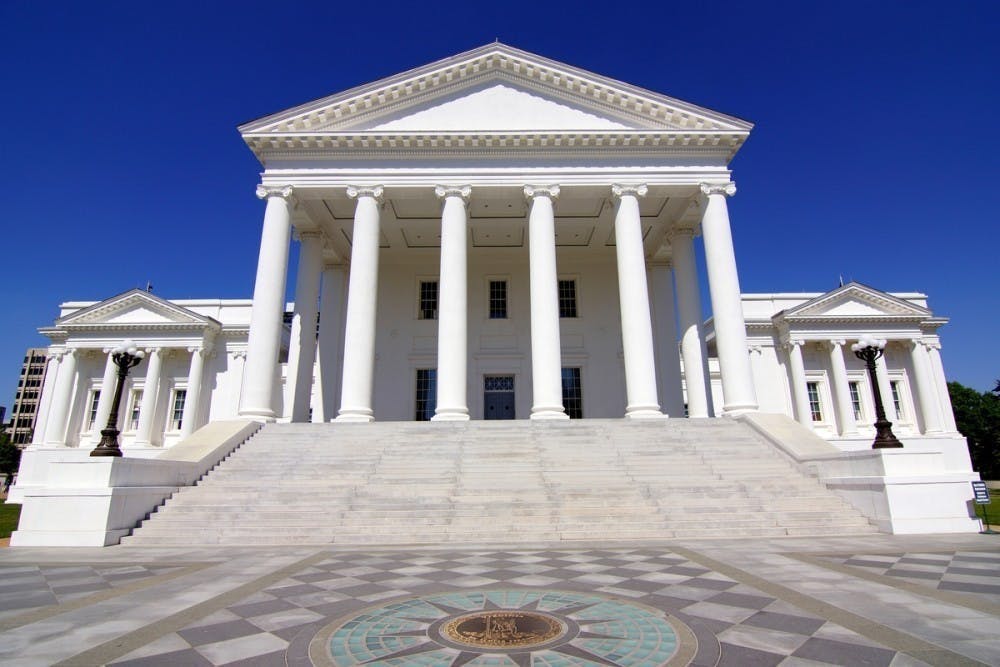This summer’s recent mass shooting in Virginia Beach serves as yet another painful reminder of the tremendous cost that has been unduly paid by far too many Virginians as the result of gun violence. It was only 12 years ago that a lone gunman went on a killing rampage at Virginia Tech, brutally murdering 32 classmates and instructors before ultimately turning the gun on himself, committing what at the time was the single largest mass shooting in American history.
In the years since then, reform measures in Virginia have failed to materialize in any meaningful capacity beyond an executive order issued by then-Gov.Tim Kaine (D) in the immediate aftermath of the shooting. Although this initiative — which brought state’s protocol for background checks into compliance with a piece of federal legislation dating back to 1968 — was simply intended to be a starting point, virtually nothing has followed in its footsteps. In fact, nearly all of the bills that were put forward at the time were swiftly thwarted by Republican lawmakers in the General Assembly, effectively leaving gun legislation in the Commonwealth virtually unaltered in the 12 years since the shooting with one notable exception. In Feb. 2012, Republican lawmakers successfully spearheaded an effort to repeal the state’s “One-Gun-A-Month Law,” a measure that had been enacted 20 years before in an attempt to curb the state’s reputation as the “gun running capital of the East Coast.”
As a result, the Commonwealth, today, finds itself with a series of gun laws that leave it woefully ill-equipped for addressing the underlying causes and subsequent consequences of gun violence. It should be no surprise that firearm death rate in Virginia has risen nearly 16 percent in the decade since the Virginia Tech Massacre with an average of 20 individuals being killed in a given week. Furthermore, in the six years since the state’s “One-Gun-A-Month Law” was repealed, smuggled firearms originating from Virginia have been recovered in large droves by law enforcement agencies from across the eastern seaboard. The extent of this loophole is so apparent that a sting operation even recorded a suspected gun smuggler boasting to an undercover operative, “In Virginia, our laws are so little, I can give guns away.”
In addition to this, unlike several surrounding states, Virginia currently has almost no restrictions governing the sale and ownership of high-capacity magazines and silencers. These two items, in particular, were both employed by the perpetrator of the Virginia Beach shooting in his deadly killing spree. Time and time again, these devices have consistently been linked to numerous high-profile mass shootings as they provide perpetrators with an almost unparalleled level of stealth and efficiency. Because of this, even legally purchased firearms — such as the two .45 pistols that were recently used — carry a public risk. This ultimately begs the question, what practical benefit do these devices serve beyond just increasing the number of casualties?
Ultimately, it is for these reasons and more that a genuine and thoughtful conversation regarding gun control must take place here in Virginia. While this notion is almost as old as the Second Amendment itself, a host of new factors and conditions exist today that would have been seemingly inconceivable to the Founding Fathers nearly 250 years ago. As a result, this reality has effectively rendered inaction on this topic to be a wholly untenable course. Going forward, unless action is taken, the Commonwealth’s lax gun laws will only further foster an environment ripe for future tragedies of this magnitude as well as an increased sense of complacency with the status quo.
Conservatives regularly criticize attempts made to strengthen gun laws in the aftermath of high-profile shootings as opportunistic and inappropriate. Yet, given how desensitized the public has become over the past decade to tragedies of this nature, it is worth asking, if not then, when is the right time to act?
The vast majority of proposals put forward by Gov. Ralph Northam (D) ahead of the General Assembly’s special session were not only rational attempts at addressing this existential crisis but also has long-standing precedent, both on the state and federal level. Specifically Northam’s plan not only called for the reinstatement of the Commonwealth’s “One-Gun-A-Month” Law, but also a statewide ban of silencers and high-capacity magazines, the latter of which was illegal between 1994-2004 under the Federal Assault Weapons Ban. In addition to this, the Governor’s plan also called for the state to adopt universal background checks for all firearm purchases, ban the sale of bumpstocks and shorten the required period of time that individuals have to report lost or stolen firearms to local and state law enforcement agencies.
Guns are an integral aspect of the American identity and the vast majority of Virginians who own firearms do so in a safe and lawful manner for reasons ranging in everything from outdoor recreation to self-defense. It is clear that the General Assembly must balance both the constitutional rights of citizens with the everyday reality that this form of violence presents in order to enact meaningful change. Ultimately, while July’s legislative special session was a missed opportunity, lawmakers in Richmond must not allow for a sense of complacency to once again take hold and for the past to inevitably repeat itself.
Thomas Driscoll is an Opinion Columnist for The Cavalier Daily. He can be reached at opinion@cavalierdaily.com.







